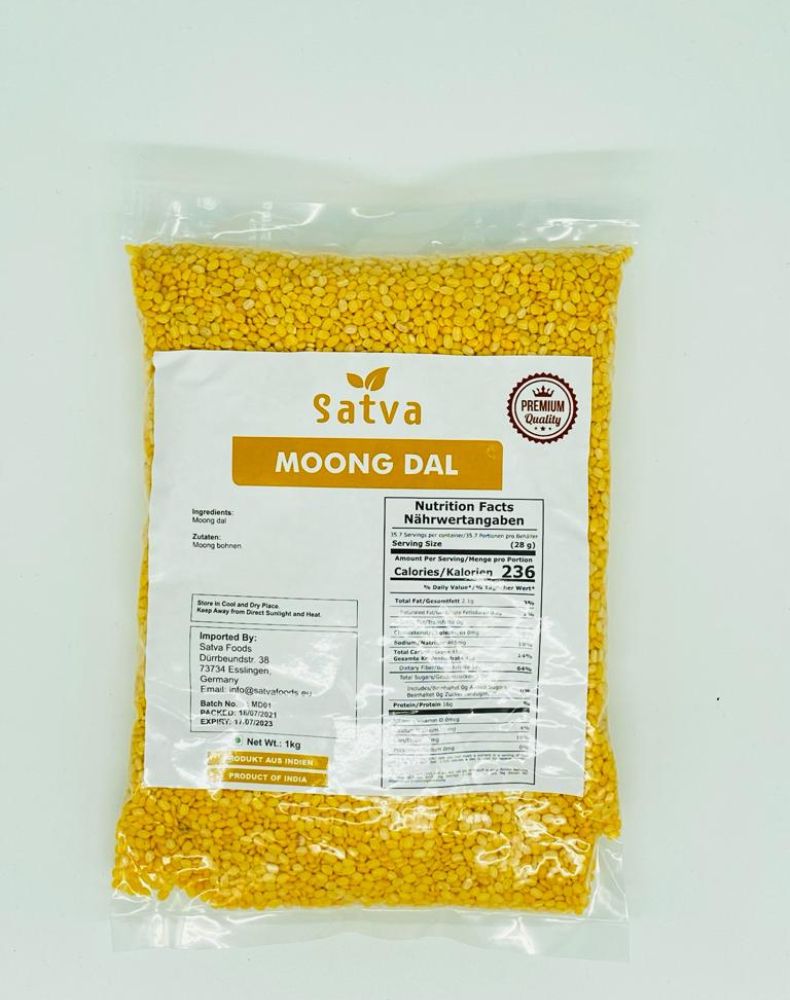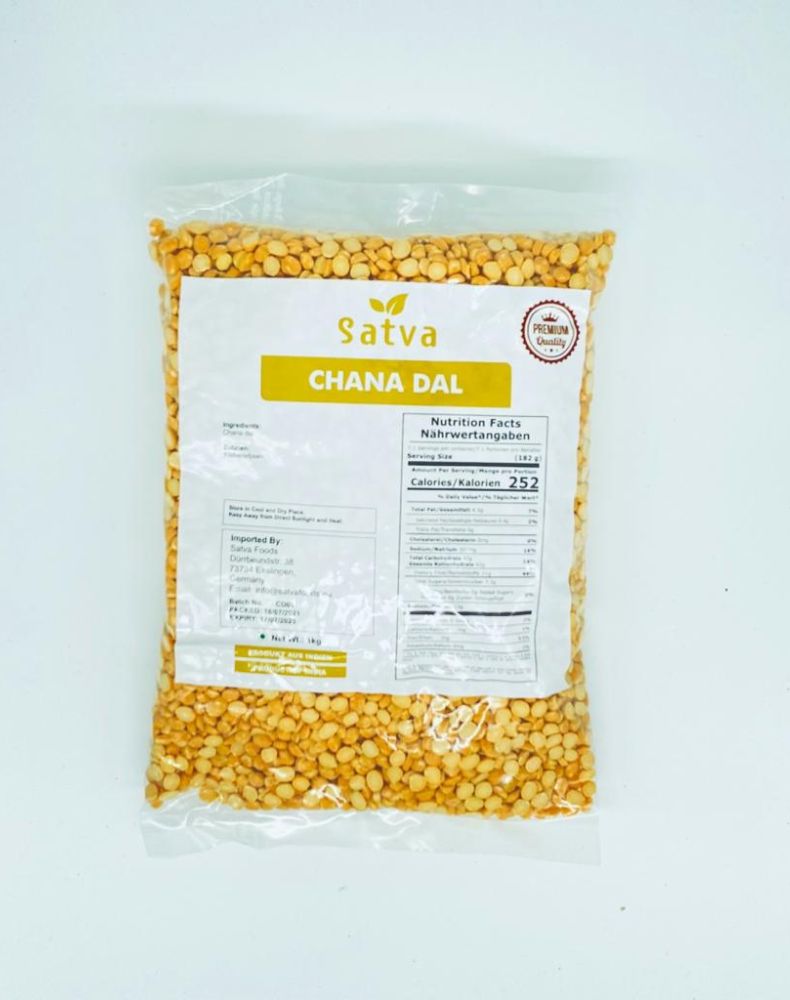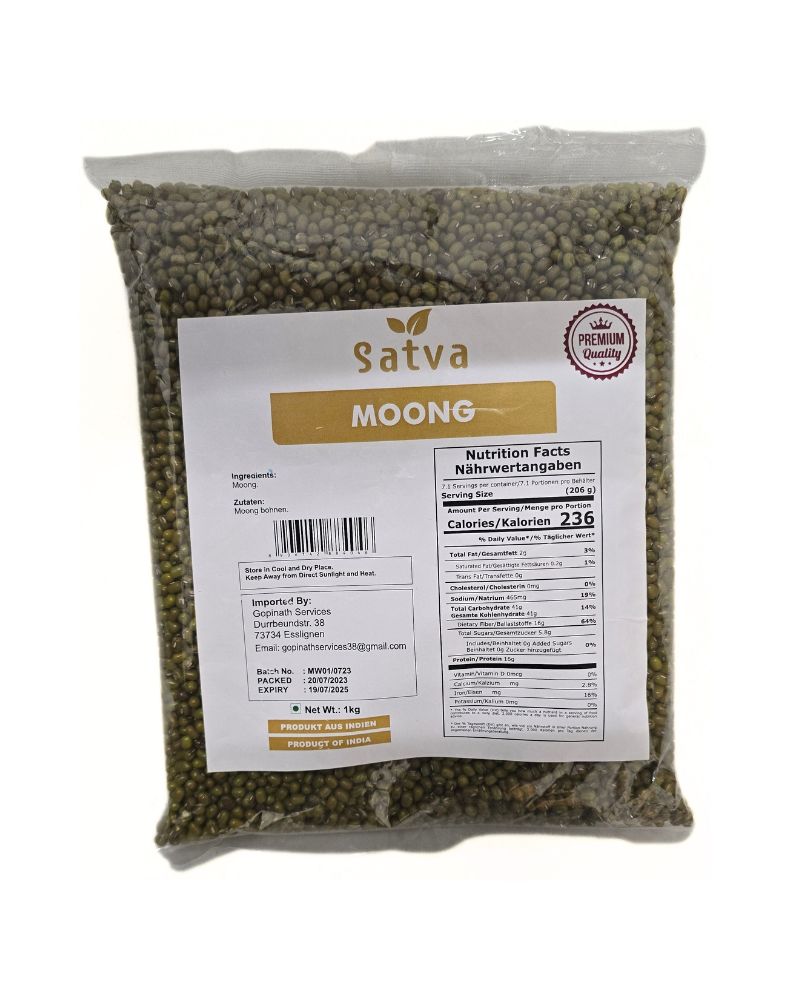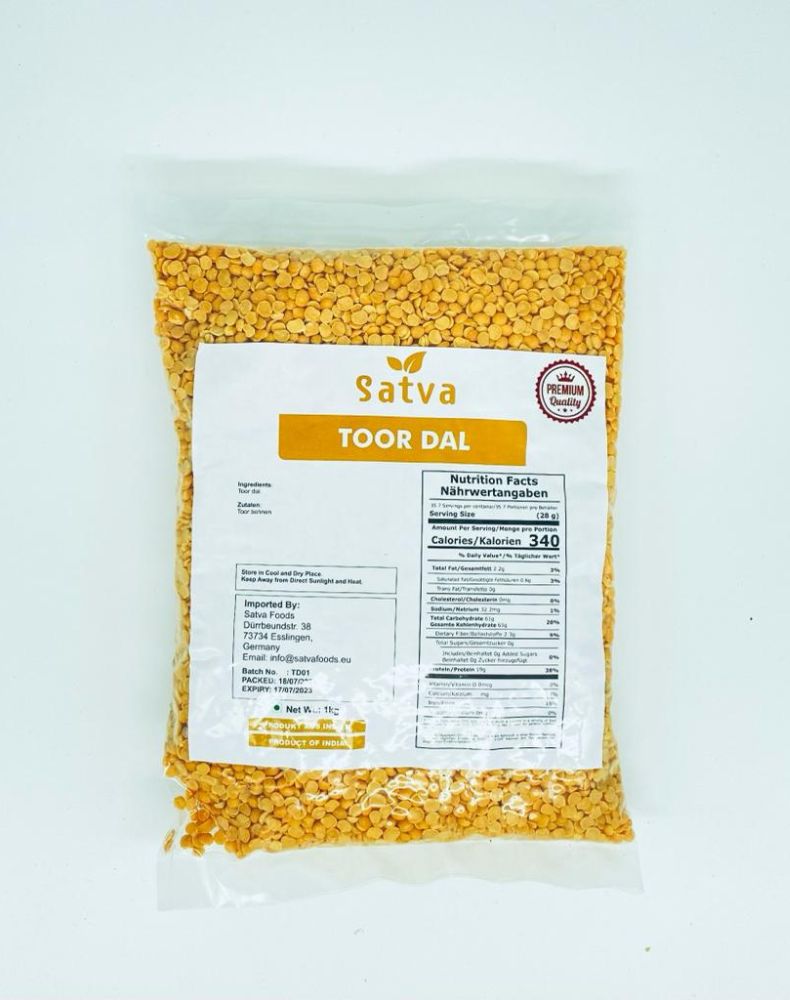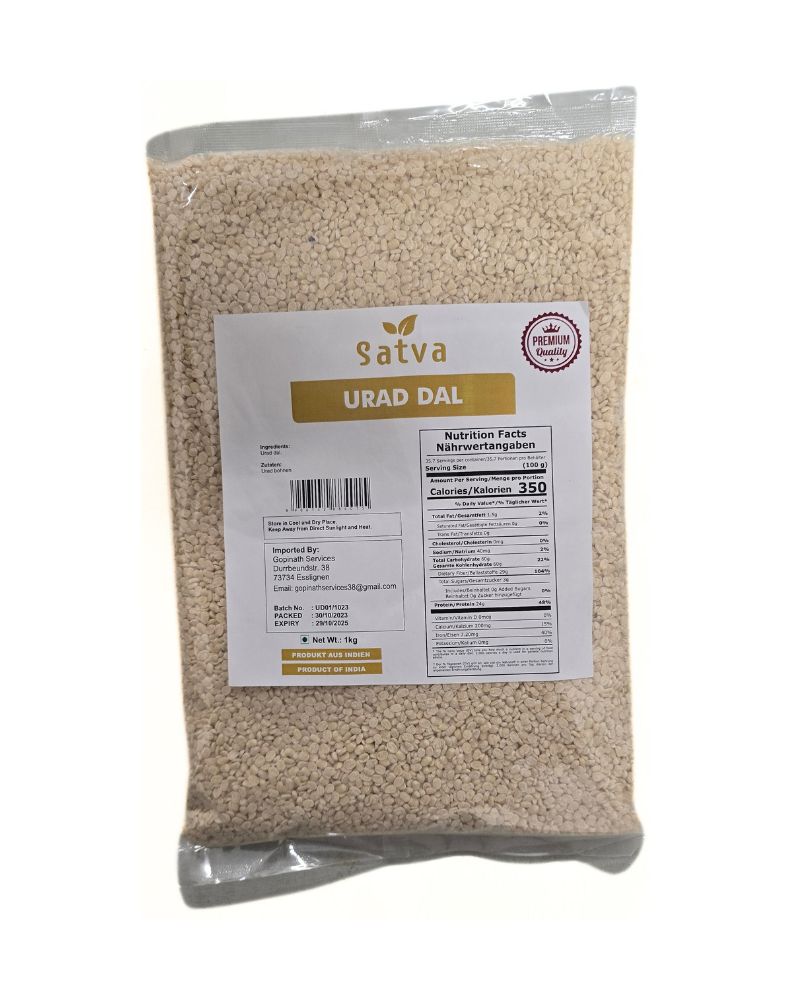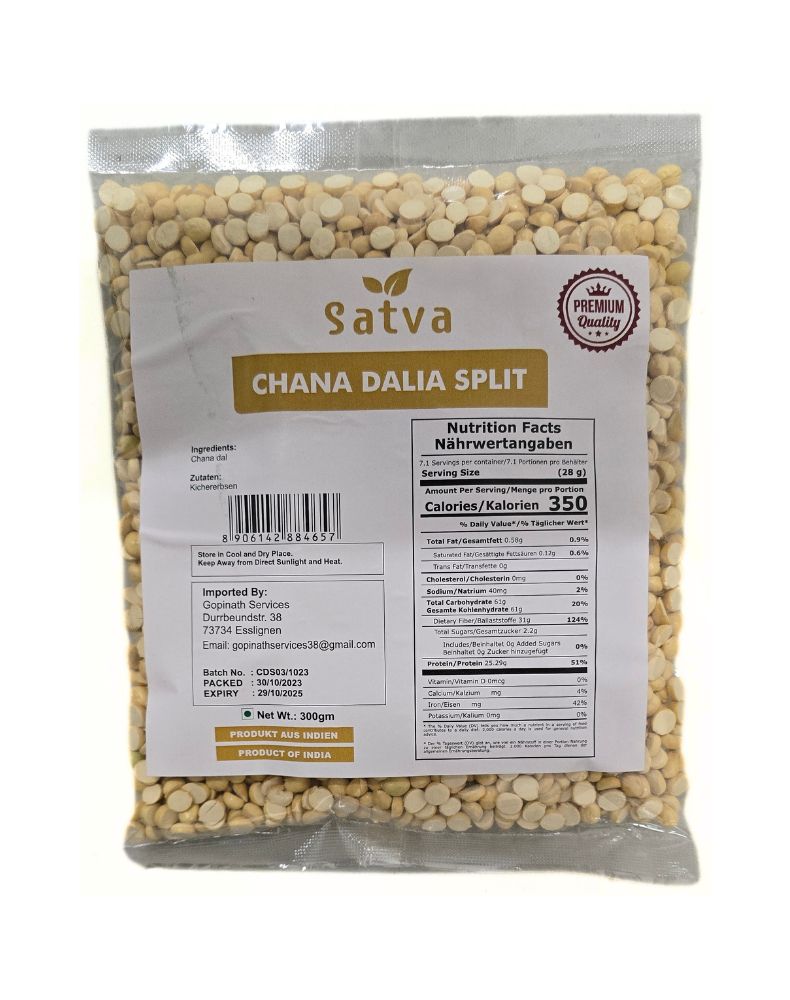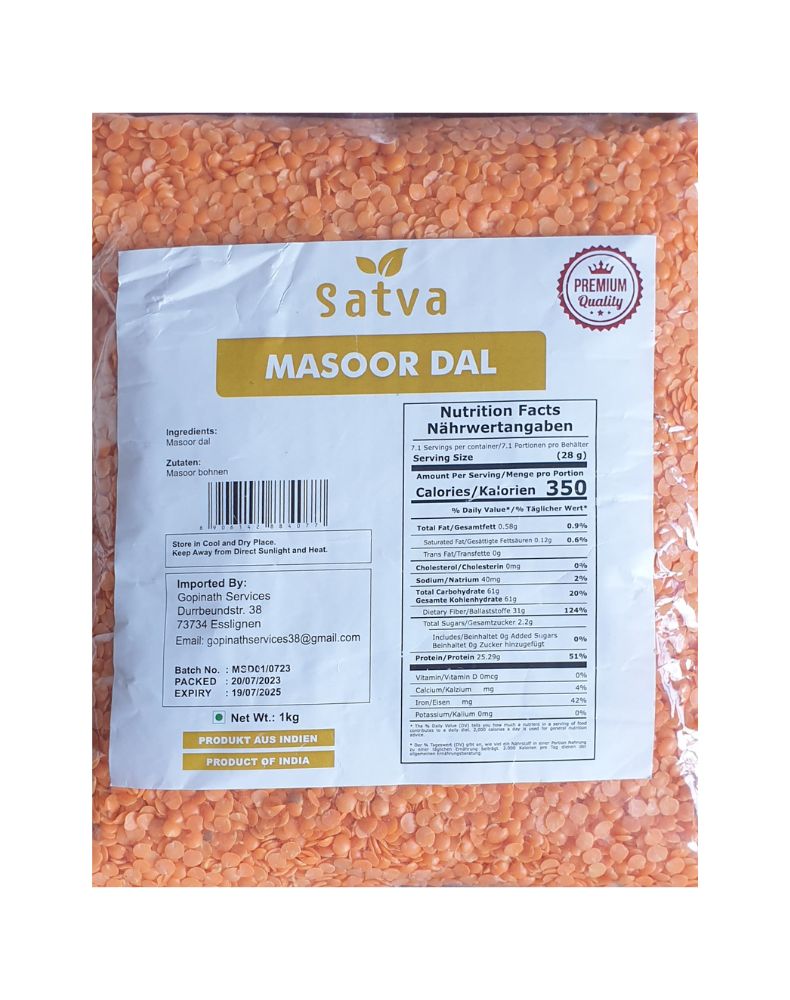Satva Yellow Moong Dal
Original price was: € 5,99.€ 4,99Current price is: € 4,99.
Yellow moong dal is a versatile and nutritious legume that plays a significant role in various culinary traditions, particularly in South Asian cuisine. Its health benefits, mild flavor, and quick cooking time make it a popular choice for a wide range of delicious dishes.
Net Weight: 1 kg
In stock
Yellow moong dal, also known as split yellow mung beans, is a popular and nutritious legume widely used in Indian cuisine and other parts of Asia.
1. Appearance: Yellow moong dal consists of hulled and split mung beans, revealing a bright yellow color. The dal has a smooth texture and is smaller in size compared to whole mung beans.
2. Nutritional Profile:
- Protein: Yellow moong dal is a rich source of plant-based protein, making it an excellent choice for vegetarians and vegans.
- Fiber: It is high in dietary fiber, promoting digestive health and helping to regulate blood sugar levels.
- Vitamins and Minerals: Yellow moong dal is a good source of essential vitamins and minerals such as folate, manganese, magnesium, and iron.
- Low in Fat: It is low in saturated fat and contains healthy unsaturated fats.
3. Culinary Uses:
- Indian Cuisine: Yellow moong dal is a staple in Indian cuisine and is used to prepare a variety of dishes. It is often the key ingredient in dals (lentil soups) and khichdi (a one-pot dish made with rice and lentils).
- Soups and Stews: The dal is commonly used in soups and stews, either on its own or combined with other vegetables and spices.
- Dosa and Idli Batter: In some regions, yellow moong dal is ground to make batter for dosas (savory pancakes) and idlis (steamed rice cakes).
4. Health Benefits:
- Digestive Health: The high fiber content in yellow moong dal promotes healthy digestion and can help prevent constipation.
- Protein Source: It is an excellent source of plant-based protein, which is important for muscle development and overall body function.
- Low Glycemic Index: Yellow moong dal has a low glycemic index, making it a good choice for individuals trying to manage blood sugar levels.
5. Preparation:
- Rinsing: Before cooking, it is common to rinse the dal thoroughly to remove any impurities or excess starch.
- Cooking: Yellow moong dal is usually boiled or pressure-cooked until soft. It can be seasoned with spices like cumin, turmeric, and coriander to enhance its flavor.
6. Cultural Significance:
- Festivals and Celebrations: Yellow moong dal is often used in festive dishes during Indian celebrations and religious ceremonies.
Additional information
| Weight | 1 kg |
|---|


